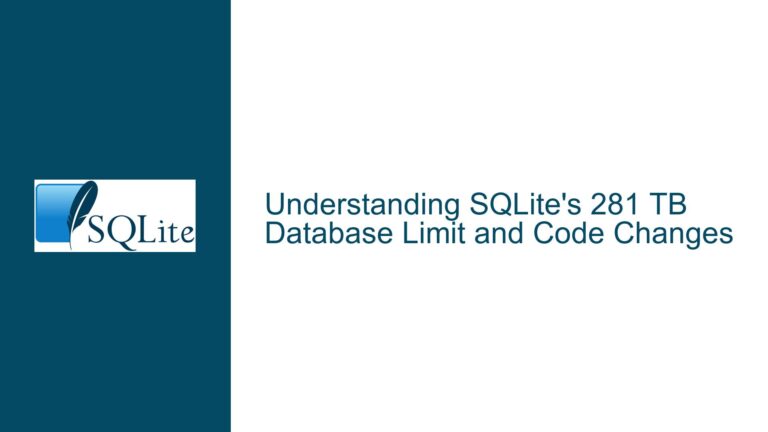SQLite CLI: Database File Path Issues and Empty Database Creation
SQLite CLI Opening Empty Database Due to Incorrect File Path When working with SQLite, particularly through its Command Line Interface (CLI), one of the most common issues users encounter is the unintentional creation of an empty database file. This problem typically arises when the .open command is used without specifying the correct file path. SQLite,…









